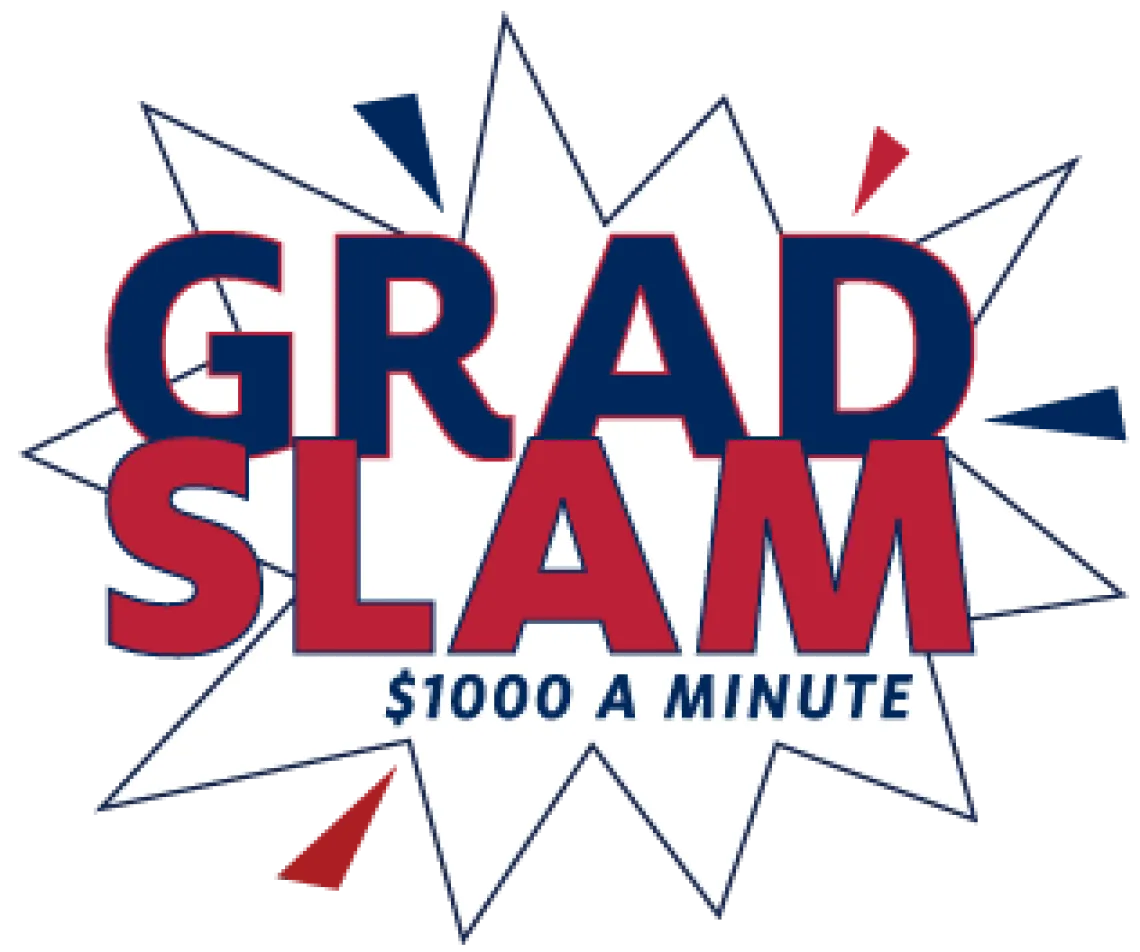Winning at Grad Slam -- and Beyond

By Elizabeth Labiner
Even though we’re often masters of self-deprecation, graduate students know that the work we do is fascinating, important, and absolutely deserving of a cash prize. The annual Grad Slam competition is a chance to show off that work, and perhaps even take home three thousand dollars.
Grad Slam provides a platform for graduate students to share their work in a three-minute oral presentation. The competition is open to students in all disciplines, and finalists have come from many different fields. Presenters must channel their research and creativity into an engaging experience for a general audience, communicating not only what they do but why it’s valuable.
Tim Frost, first-place winner of Grad Slam 2017, points out the necessity of communicating one’s highly specialized work in terms that non-specialists (policy-makers, employers, donors, family and friends, review boards, grant agencies, etc.) can recognize as important. Frost notes, “A lot of contestants I saw simplified their research, but it still wasn’t accessible enough. The finalists last year all did a great job of conveying their research so a general audience could latch on to their ideas and get excited about them.”
Making a project clear and understandable for a broad audience is a crucial ability in any profession. Frost, who is a doctoral student in the Biomedical Engineering Graduate Interdisciplinary Program, continues,
I think Engineers are stereotyped as having poor social and communication skills, and I really hoped that I could break that paradigm a little bit. I had a lot of fun taking a really technical set of data and presenting it in a way to excite a general audience about how UA is advancing medical research. Being able to tangibly show companies that I can effectively present technical research has really opened a lot of doors for me.
Sara Khosravi, a Grad Slam 2017 finalist, also appreciates her improved ability to convey her research quickly and to diverse audiences: “Sometimes in life you have opportunities that only give you a limited time to present yourself. It’s important to involve audiences who may not have knowledge in your research area; I tried to talk about a common problem they may have in their daily lives and how my research can help them.” The prize money is a huge boon, of course, but so is the process of working toward and competing in Grad Slam.
Creating such a short presentation from an enormous body of work isn’t easy. Frost emphasizes practicing often and rewriting when needed, as does Lora Key, the third-place winner of Grad Slam 2017. Key explains, “I worked with my advisor and a friend who listened and timed different versions. I shortened my speech considerably, made my power points clearer, and committed my speech to memory. I practiced every day.”
All of Frost and Key’s hard work led not only to victory at UA’s Grad Slam, but also to further success at the state-wide Grad Slam competition in Phoenix. The opportunities earned and connections forged have been invigorating, Key says:
I met amazing graduate students from the three state universities. In addition, I met a professor from NAU who wanted to interview me for a radio program on veterans' issues, since my project studies immigration and service in World War II. I also made valuable contacts among the judges at both the University of Arizona and on the state level.
The impact of Grad Slam on both your work and networking extends far beyond the monetary prize or a prestigious award to put on your CV, though both Frost and Key appreciate the myriad benefits of those rewards as well. “I am so happy I decided to compete,” enthuses Key. Frost adds, “It was really challenging but incredibly rewarding.” Khosravi agrees, “I think being a finalist at Grad Slam was one of the great experiences in my academic life.”
If you’re interested in competing, the Graduate Center and GPSC want to help you prepare! Together, they’re hosting a series of professional development and training workshops for participants. Free and open to all students, whether you decide to compete or not, the workshops will help you learn about strategies for effective public speaking. They also enhance students’ written and visual communication skills.
To learn more about Grad Slam, visit the Grad Slam page of the Graduate Center website.
To sign up to participate in Grad Slam, visit the registration page.
If you’re interested in practicing your presentation or honing your skills for Grad Slam, sign up for the preparatory workshops.
Videos of the presentations of previous Grad Slam winners are available on the Graduate Center website.

